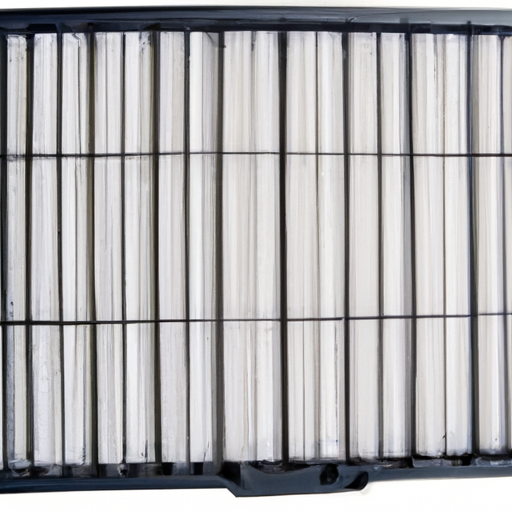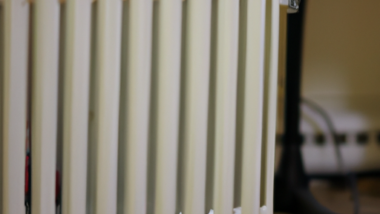If you’re wondering how to make your heating system as efficient as possible, proper maintenance and regular servicing are key. By taking the time to ensure that your heating system is in top shape, you can not only save money on energy costs but also prolong the lifespan of your equipment. This article will explore the various steps you can take to optimize your heating system’s efficiency, from cleaning and replacing filters to scheduling professional inspections and tune-ups. By following these simple tips, you’ll be able to enjoy a warm and cozy home while keeping your energy bills in check.
Importance of Proper Maintenance
Proper maintenance of your heating system is crucial for several reasons. First and foremost, it increases efficiency, allowing your system to work at its optimal level. This means that you’ll get the most out of every unit of energy consumed, translating into a lower energy bill for you. Additionally, regular maintenance reduces energy consumption, which is not only beneficial for your wallet, but also for the environment. Finally, proper maintenance prolongs the lifespan of your system, saving you money on expensive repairs or replacements down the line.
Regular Servicing
To ensure that your heating system operates efficiently, regular servicing is essential. The frequency of servicing depends on the type of system you have and the manufacturer’s recommendations. However, it is generally advised to have a professional technician inspect and service your system at least once a year.
The benefits of regular servicing are numerous. Firstly, it helps identify any potential issues before they escalate into major problems. This proactive approach can prevent costly and unnecessary repairs. Regular servicing also ensures that your system is functioning safely, reducing the risk of accidents or malfunctions. Additionally, servicing improves air quality by cleaning and maintaining the system’s components, resulting in cleaner and healthier air circulating throughout your home.
Hiring professional technicians for servicing is highly recommended. They have the expertise and experience to handle your heating system efficiently and effectively. They can identify problems that untrained individuals may overlook and provide appropriate solutions. Moreover, professionals have access to specialized tools and equipment that ensure thorough servicing and maintenance.
Cleaning and Air Flow
One important aspect of heating system maintenance is cleaning and ensuring proper air flow. The cleanliness of air filters greatly affects the efficiency of your system. Over time, filters can become clogged with dirt, dust, and other pollutants, obstructing the flow of air. Regularly cleaning or replacing air filters is essential for maintaining optimal air flow and system efficiency.
Equally important is maintaining clear air vents and ducts. Over time, debris, dust, and other particles can accumulate in the vents and ductwork, hindering the flow of air. Regularly inspecting and cleaning these areas will ensure that air can circulate freely, allowing your system to operate efficiently.
Another important step is to remove debris from the outdoor unit. Leaves, twigs, and other debris can accumulate around the outdoor unit, obstructing its proper functioning. Clearing away any debris will allow the unit to draw in air efficiently, helping your system work optimally.
Checking and Adjusting Thermostat
The thermostat plays a crucial role in regulating the temperature of your home. However, it is important to ensure that your thermostat is calibrated correctly to avoid inaccurate temperature readings. Over time, thermostats can become misaligned, resulting in improper temperature control. Checking and calibrating your thermostat regularly will ensure accurate temperature readings and efficient heating.
Setting the appropriate temperature is another important aspect of thermostat maintenance. Finding the right balance is not only essential for your comfort but also for energy efficiency. Setting the temperature too high can result in unnecessary energy consumption, while setting it too low may leave you feeling uncomfortable. It is recommended to set the temperature at a moderate level that still provides warmth while being mindful of energy usage.
Utilizing programmable thermostats can also optimize your heating system’s efficiency. These thermostats allow you to schedule temperature adjustments based on your daily routine. For example, you can reduce the temperature during the day when no one is home and increase it before everyone returns. This way, your system will only work when necessary, saving energy and lowering your heating costs.
Checking and Sealing Air Leaks
Air leaks in your home can lead to significant energy losses and reduce the efficiency of your heating system. Identifying air leaks and sealing them is an effective way to optimize your system’s efficiency.
To identify air leaks, carefully inspect your home for drafty areas. Common sources of air leaks include windows, doors, electrical outlets, and gaps around pipes. Once you locate air leaks, you can address them by using weatherstripping or caulking to seal gaps. Weatherstripping is typically used for movable components like doors and windows, while caulking is used for gaps in stationary areas.
In addition to sealing air leaks, it is important to insulate your ductwork. Insulated ducts prevent heat loss during the distribution of warm air throughout your home. You can use insulation sleeves or wraps to cover exposed ducts and minimize heat loss. Proper duct insulation ensures that the warm air generated by your heating system reaches its intended destination efficiently.
Inspecting and Cleaning Burners
Clean burners are essential for efficient and safe operation of your heating system. Over time, burner components can accumulate dirt, debris, and even rust, hindering their performance. Regularly cleaning burner components will prevent clogs and ensure proper fuel combustion.
Ensuring proper ignition and flame is another crucial step in burner maintenance. The flame should be steady, blue, and appropriately adjusted. If the flame is yellow or flickering, it may indicate a problem that needs to be addressed. It is recommended to have a professional technician inspect and adjust the burner settings to optimize your system’s efficiency.
Cleaning and Lubricating System Parts
Cleaning and lubricating various system parts is an important maintenance task that helps ensure optimal efficiency and performance. Fan blades and motors can accumulate dust and dirt, affecting their ability to operate smoothly. Regularly cleaning these components removes any obstructions and allows them to work efficiently.
Lubricating moving parts is equally important. Proper lubrication reduces friction between components, minimizing wear and tear and extending their lifespan. Consult your system’s manual or a professional technician to determine the appropriate lubrication points and frequency.
Inspecting and cleaning the blower assembly is another crucial step in system maintenance. The blower assembly distributes warm air throughout your home. Over time, dust and debris can accumulate on the blades, impeding their ability to move air efficiently. Regularly cleaning the blower assembly ensures proper air flow and efficient heating.
Inspecting and Cleaning Heat Exchanger
The heat exchanger is responsible for transferring heat from the combustion process to the air that circulates throughout your home. Regularly inspecting and cleaning the heat exchanger is vital for maintaining optimal efficiency.
Examine the heat exchanger for any cracks or damage during your maintenance routine. Cracks in the heat exchanger can lead to the release of harmful gases into your home, posing a serious health risk. If you notice any signs of damage, it is crucial to have it repaired or replaced immediately by a professional technician.
Cleaning and clearing any blockages in the heat exchanger is equally important. Over time, dirt, dust, and debris can accumulate, obstructing the heat transfer process. Regularly cleaning the heat exchanger eliminates these obstructions and ensures efficient heat transfer, maximizing the effectiveness of your heating system.
Flushing and Maintaining Water Heater
If you have a water heater, proper maintenance is essential for optimal efficiency. Flushing and maintaining the water heater should be performed regularly to prevent sediment buildup and potential damage.
Draining and flushing the tank removes sediment and mineral deposits that accumulate over time. These deposits can hinder the water heater’s ability to heat water efficiently. By flushing the tank, you allow for better heat transfer and ensure that your water heater operates at its best.
Checking the pressure relief valve is another important step. This valve helps prevent excessive pressure buildup in the tank. Regularly inspecting and testing the valve ensures it is functioning correctly and can help prevent potential accidents or malfunctions.
Adjusting the temperature settings of your water heater is also crucial for energy efficiency. Setting the temperature too high not only wastes energy but also poses a safety risk. It is recommended to set the temperature at a moderate level that meets your needs while promoting energy efficiency.
Monitoring Fuel Supply
If your heating system relies on fuel, monitoring the fuel supply is an essential maintenance task. Regularly checking fuel levels ensures that you have an adequate supply to keep your system running smoothly.
Cleaning fuel lines and nozzles is crucial for optimal fuel combustion. Over time, dirt, debris, and even water can accumulate in the fuel lines, obstructing the flow of fuel. Cleaning these components prevents clogs and ensures that fuel can reach the burner efficiently.
Ensuring proper fuel combustion is vital for both efficiency and safety. If your system produces excessive soot or smoke, it may indicate a combustion problem. Having a professional technician inspect and adjust your system’s settings can optimize fuel combustion and increase your system’s efficiency.
By following these maintenance steps, you can optimize your heating system’s efficiency, reduce energy consumption, and prolong its lifespan. Regular servicing, cleaning, adjusting, and monitoring will ensure that your system operates at its best, providing you with a warm and comfortable home while saving you money on energy bills. Remember, it is always best to consult a professional technician for any complex maintenance or repairs to ensure the safety and effectiveness of your heating system.


